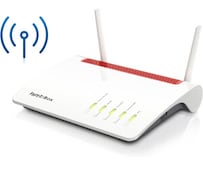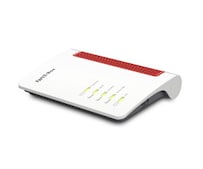With a little delay, the Federal Cabinet decided on the right to “fast” Internet. According to the regulations, in future fixed-line Internet must have at least 10 megabits per second for downloading and 1.7 megabits per second for uploading everywhere in Germany. Both values are low, and significantly better internet connections are possible in the vast majority of households. The lower limit could still be helpful for people in the countryside or on the outskirts of town – they have a legal right to broadband Internet for the first time. Under certain circumstances, the Federal Network Agency could arrange for the laying of better lines.
New minimum values every year
There is also a target for the latency, i.e. the response time. This must not be longer than 150 milliseconds. Inexpensive Internet via satellites that are far away is therefore not actually an option for supplying remote houses because the latency is higher. Only internet via low-earth satellites can be considered, but this is expensive. The regulation now allows exceptions where higher latency satellite technologies can be used.
Digital Minister Volker Wissing (FDP) said that the minimum requirements ensure “the digital participation of all those who have so far been cut off from the supply”. Another positive for consumers is that the minimum values are to be redefined every year. Here, the general internet use in Germany is taken into account. Since the overall network expansion is progressing significantly and people are getting better and better contracts, this lower limit will also rise continuously.
Opposition has doubts about basic services
Originally, the regulation now passed by the Federal Cabinet was to come into force on June 1, 2022. However, the green light from the Federal Council and the Digital Committee of the Bundestag is still missing. There is a need for discussion there. On May 4, 2022, the Federal Digital Ministry admitted that the planned date is unlikely to be tenable.
The digital policy spokesman for the opposition CDU/CSU parliamentary group in the Bundestag, Reinhard Brandl, called the regulation passed by the government “unambitious”. The meanwhile usual usage behavior of the citizens is ignored. “We have serious doubts as to whether a 10 megabit download rate and a 1.7 megabit upload rate per connection is sufficient for a family with children as basic service.” (With material from the dpa.)









